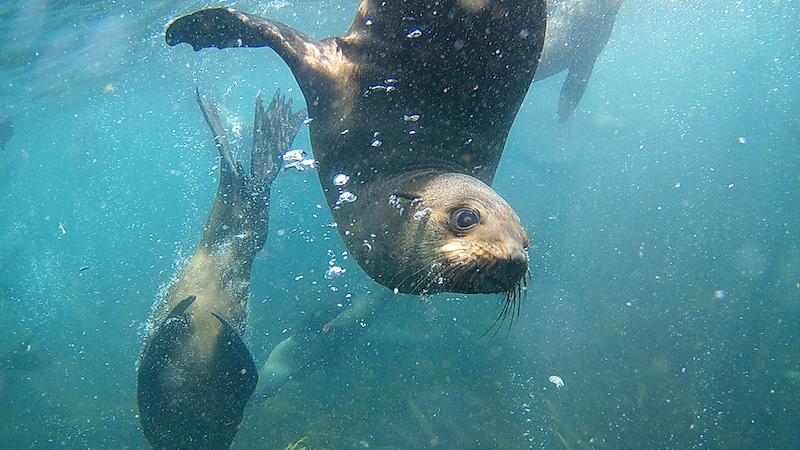Marine Science for Middle Schoolers or High Schoolers
This course is suitable for a high school student with some background in biology who is looking to go deeper into all aspects of marine science. It is taught by Jenny Bourassa, a marine biologist with extensive background in this subject. The course is divided into three sections that will require both a reading and response each week. The three parts include current events and news articles, a book club, and marine science content/academics. Below you will find a more detailed description of each section as well as a tentative weekly timeline for each semester.Marine Science Content
(~2-3 hrs/week) This section of the course will include formal academic readings from a textbook, (Marine Science, Second Edition Thomas F. Greene), but will also include a variety of other texts, videos, and animations. The first semester will focus on the different types of life in the ocean, beginning with unicellular organisms followed by algae, plants, and invertebrates. The second semester will continue on with marine vertebrates (fishes, reptiles, birds and mammals) and end with ecology, adaptations, conversation. The second semester will close with a final project centered around the student’s interests and passions (and possibly location based). Each weekly assignment will contain reading response questions, some data analysis, and possible observations (depending on location and availability).Current Event/News Article
(~1 hr/week) This section will be the same format each week. We will review 1 or 2 current events/news articles from the past few weeks related to marine science, conservation, or biology. The student will be required to summarize the article and answer a few specific questions asynchronously, and we’ll discuss in our live weekly sessions.Book Club & Report
(~1-2 hrs/week) This section of the course will require the student to read either an excerpt or chapter each week and respond to the reading. The format of the responses will stay the same throughout the semester. The student will complete a Reading Assessment Written Response (RAWR) which includes understanding the major thesis, quote analysis, text comparison, application, and critique of the reading. A RAWR response will be completed each week. Once the book has been completed, the student will be assigned a more formal written book report. This will incorporate many of the RAWR assignments from earlier weeks but also ask for some closing thoughts and takeaways. The book report will help guide a final discussion or seminar about the book. In a live session we will discuss the book together. The student will be expected to use evidence from their book report to support their claims and responses during the discussion.Semester One Final Assignments
The last two weeks of the first semester will be dedicated to brainstorming for a mini project for the student to complete on their own between semester. This mini project will allow us to introduce the idea of the project and explore some concepts in project-based learning in preparation for a full-scale project at the end of the second semester. Ideally, the student will be able to incorporate a community or volunteer opportunity into the project and/or some kind of expeditionary learning, all depending on context. This is a mini project, only lasting two weeks. After completion the student will wrap up the final week with a self reflection assignment including personal and academic goal setting as well as course and teacher feedback before moving into semester two.Semester Two Final Assignments
The last few weeks of the second semester will culminate in a final project designed and executed by the student. This project will be driven by the interests and passions of the students and will aim to serve a larger purpose locally (if applicable). The best projects are the ones that meet a community need or are somehow bigger than the student themselves. We will work together throughout the semester to find appropriate partners and stakeholders to ensure this aspect of the final project. In addition to the project, the students will complete a written self reflection including strengths, struggles, future goals, and final thoughts.Book Club Reading List
- Soul of Octopus by Sy Montgomery
- Why Fish Don’t Exist by Lulu Miller
- Silent Spring by Rachel Carson (Excerpt)
- A Short History of Nearly Everything by Bill Bryson (Excerpt)
Marine Science is interdisciplinary, project-based, and place-based. Read more about why you should take a Marine Science Course.

